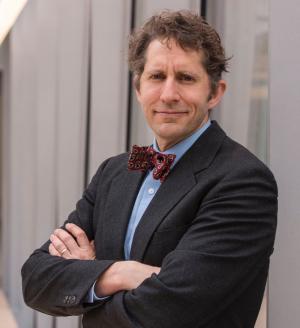
My research focuses on the collective system of thinking and knowing, ranging from the distribution of attention and intuition, the origin of ideas and shared habits of reasoning to processes of agreement (and dispute), accumulation of certainty (and doubt), and the texture—novelty, ambiguity, topology—of understanding. I am especially interested in innovation—how new ideas and practices emerge—and the role that social and technical institutions (e.g., the Internet, markets, collaborations) play in collective cognition and discovery. Much of my work has focused on areas of modern science and technology, but I am also interested in other domains of knowledge—news, law, religion, gossip, hunches, machine and historical modes of thinking and knowing. I support the creation of novel observatories for human understanding and action through crowd sourcing, information extraction from text and images, and the use of distributed sensors (e.g., RFID tags, cell phones). I use machine learning, generative modeling, social and semantic network representations to explore knowledge processes, scale up interpretive and field-methods, and create alternatives to current discovery regimes. My research has been supported by the National Science Foundation, the National Institutes of Health, the Air Force office of Science Research, and many philanthropic sources, and has been published in Nature, Science, Proceedings of the National Academy of Science, American Journal of Sociology, American Sociological Review, Social Studies of Science, Research Policy, Critical Theory, Administrative Science Quarterly, and other outlets. My work has been featured in the Economist, New York Times, Atlantic Monthly, Wired, NPR, BBC, El País, CNN, Le Monde, and many other outlets.
At Chicago, I am Director of Knowledge Lab, which has collaborative, granting and employment opportunities, as well as ongoing seminars. I also founded and now direct the Computational Social Science program at Chicago, and sponsor an associated Computational Social Science workshop. I teach courses in augmented intelligence, the history of modern science, science studies, computational content analysis, and Internet and Society. Before Chicago, I received my doctorate in sociology from Stanford University, served as a research associate in the Negotiation, Organizations, and Markets group at Harvard Business School, started a private high school focused on project-based arts education, and completed a B. A. in Anthropology at Brigham Young University.
SELECTED PUBLICATIONS
Wu, Lingfei, Dashun Wang & James A. Evans. 2019. “Large Teams Develop Science and Technology, Small Teams Disrupt It.” Nature.
McMahan, Peter & James A. Evans. 2018. “Ambiguity and Engagement”. American Journal of Sociology.
Börner, Katy, Olga Scrivner, Mike Gallant, Shutian Ma, Xiaozhong Liu, Keith Chewning, Lingfei Wu, and James A. Evans. 2018. “Skill discrepancies between research, education, and jobs reveal the critical need to supply soft skills for the data economy.” Proceedings of the National Academy of Sciences
Teplitskiy, Misha, Daniel Acuna, Aida Elamrani-Raoult, Konrad Kording, and James A. Evans. 2018. “The Sociology of Scientific Validity: How Professional Networks Shape Judgement in Peer Review”. Research Policy.
Gerow, Aaron, Yuening Hu, Jordan Boyd-Graber, David M. Blei, James A. Evans. 2018. “Measuring Discursive Influence across Scholarship.” Proceedings of the National Academy of Sciences, doi: 10.1073/pnas.1719792115.
Fortunato, Santo, Carl T. Bergstrom, Katy Börner, James A. Evans, Dirk Helbing, Staša Milojević, Alexander M. Petersen, Filippo Radicchi, Roberta Sinatra, Brian Uzzi, Alessandro Vespignani, Ludo Waltman, Dashun Wang, Albert-László Barabási. 2018. “Science of science.” Science 359(6379): eaao0185, doi: 10.1126/science.aao0185.
Shi, Feng, Yongren Shi, Fedor Dokshin, James Evans & Michael Macy. 2017. “Can We Agree on Science? Measuring the Ideological Alignment of Science with Book Co-purchase Data.” Nature Human Behaviour 1(0079), doi: 10.1038/s41562-017-0079.
Evans, James and Pedro Aceves. 2016. “Machine Translation: Mining Text for Social Theory.” Annual Review of Sociology 42:1-30, doi:10.1146/annurev-soc-081715-074206.
Rzhetsky, Andrey, Jacob Foster, Ian Foster and James Evans. 2015. “Choosing Experiments to Accelerate Discovery.” Issue cover: “Engineering of Biology and Medicine”. Proceedings of the National Academy of Sciences112(47):14569–14574, doi:10.1073/pnas.1509757112
Foster, Jacob, Andrey Rzhetsky, James Evans. 2015. “Tradition and Innovation in Scientists’ Research Strategies”. American Sociological Review October, 80:875-908, doi:10.1177/0003122415601618 2016.
Shi, Feng, Jacob Foster, & James Evans. 2015. “Weaving the Fabric of Science: Dynamic network models of science’s unfolding structure.” Social Networks 43:73-85. doi:10.1016/j.socnet.2015.02.006
West, Jevon, Jacob Foster, Martin Rosvall, Daril Villena, James Evans, Carl Bergstrom. 2014. “Finding Cultural Holes: How Structure and Culture Diverge in Networks of Scholarly Communication” Sociological Science. June 9, doi:10.15195/v1.a15
Evans, James, Jae-Mahn Shim, John P. Ioannidis. 2014. “Attention to Local Health Burden and the Global Disparity of Health Research” PLOS ONE. April 1, doi: 10.1371/journal.pone.0090147.
Evans, James. 2013. “Communication and the Evolution of Cognition.” In: Linda Caporael, James Griesemer and William Wimsatt, eds., Scaffolding in Evolution, Cognition and Culture, MIT Press.
Divoli, Anna, Eneida Mendonça, James Evans, Andrey Rzhetsky. 2011. “Conflicting biomedical assumptions for mathematical modeling: The case of cancer metastasis” PLoS Computational Biology 7(10): e1002132. DOI:10.1371/journal.pcbi.1002132.
Evans, James and Jacob Foster. 2011 “Metaknowledge.” Science331(6018):721-725.
Evans, James. 2010. “Industry Collaboration, Scientific Sharing and the Dissemination of Knowledge.” Social Studies of Science 40(5): 757-791.
Evans, James. 2010. “Industry Induces Academic Science to Know Less About More.” American Journal of Sociology 116(2): 389-452.
Evans, James and Jacob Reimer. 2009. “Open Access and Global Participation in Science,” Science323: 1025.
Evans, James. 2008. “Electronic Publication and the Narrowing of Science and Scholarship,” Science321: 395-399.
Evans, James, Stephen R. Barley and Gideon Kunda. 2004. “Beach Time, Bridge Time, and Billable Hours: The Temporal Structure of Technical Contracting,” Administrative Science Quarterly 49: 1-38.
Kunda, Gideon, Stephen R. Barley and James Evans. 2002. “Why Do Contractors Contract? The Experience of Highly Skilled Technical Professionals in a Contingent Labor Market,” Industrial and Labor Relations Review 55: 234-261
 THE UNIVERSITY OF CHICAGO
THE UNIVERSITY OF CHICAGO

